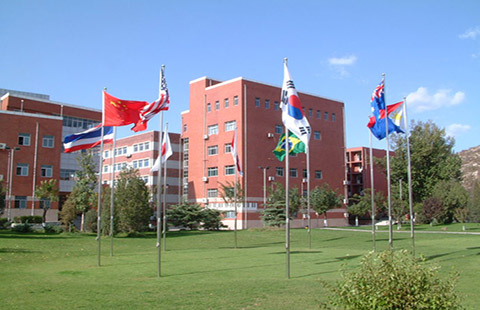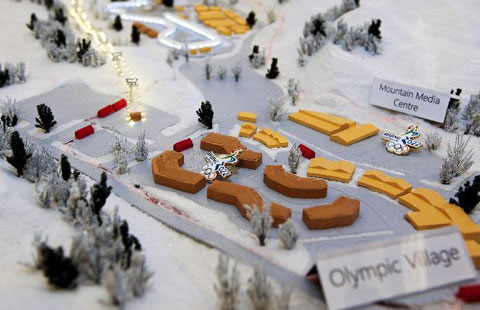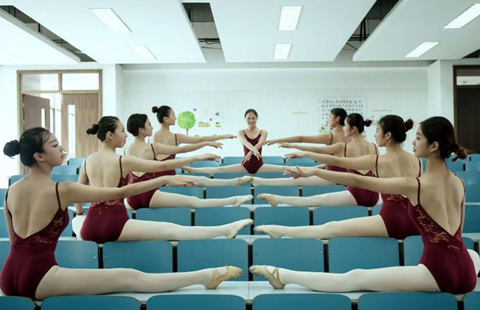Top brass visit Pentagon
Updated: 2015-06-12 13:43
By CHEN WEIHUA in Washington and LI XIAOKUN in Beijing(China Daily USA)
|
||||||||
Chinese and United States military leaders met at the Pentagon on Thursday to talk about how to strengthen cooperation and manage differences.
On the sunny Thursday morning, US Defense Secretary Ash Carter greeted China's Central Military Commission Vice-Chairman Fan Changlong and his delegation as Fan's motorcade arrived at 10 am at the Pentagon gate facing the Potomac River.
The two shook hands and then walked up the steps. They stood facing and saluting the enhanced honor cordon of more than 50 people, including a military band that played the national anthems of China and the United States.
The two then met in the Pentagon for several hours for talks that were closed to the press.
Fan told Carter that the purpose of his visit is to implement the important consensus reached by the two nations' leaders to push for a deepened and stable development of the bilateral military-to-military relationship, according to a press release by Fan's delegation.
He was referring to the consensus reached by Chinese President Xi Jinping and US President Barack Obama to build a new type of major country relationship.
"The Chinese and US militaries should strive to build a new type of military relationship characterized by 'mutual trust, cooperation, no-confrontation and being sustainable,'" Fan was quoted as saying in the press release.
He hoped that the two sides would make concerted efforts to strengthen exchange, promote strategic mutual trust, step up practical cooperation and effectively manage and control crisis and risks.
Fan noted that the Nansha Islands and the neighboring waters have been an integral part of the Chinese territory since ancient times. He said the construction on some reefs and islets there and facility maintenance are mainly for the purpose of improving the living and working conditions of people there as well as to better protect China's territorial sovereignty and maritime rights.
He said there is nothing wrong for China to deploy military facilities on its own territory, and hopes the US side will keep its stance of not taking side on the issue and reduce its air and naval activities in the South China Sea.
A Pentagon press release after the meeting said Carter and Fan exchanged views on key issues of mutual concern including military-to-military relations, regional security and maritime issues, including land reclamation in the South China Sea.
Carter stressed his commitment to developing a sustained and substantive US-China military-to-military relationship based on a shared desire to deepen practical, concrete cooperation in areas of mutual interest, including humanitarian assistance and disaster response, peacekeeping, military medicine, counter-piracy and constructive management of differences, according to the press release.
It said Carter reiterated US concerns on the South China Sea, and called on China and all claimants to implement a lasting halt on land reclamation, cease further militarization, and pursue a peaceful resolution of territorial disputes in accordance with international law.
It said Carter reaffirmed his commitment to reach a consensus on the air-to-air annex to the Rules of Behavior for the Safety of Air and Maritime Encounters Memorandum of Understanding by September. This annex will reduce the risk of miscalculation or accidents when the two countries' aircraft operate in close proximity.
Fan is the most senior Chinese military leader to come to Washington since President Xi Jinping assumed top leadership in late 2012.
On Friday, Fan will meet US veterans who fought in the War of Resistance against Japan (1937-45) and their families. He is scheduled to join US Army General Ray Odierno to sign a US-China Army-to-Army Dialogue Mechanism at the National Defense University. Fan is also expected to meet US leaders at the White House.
Fan, along with high-level officers of the PLA, started the US trip on Monday, with visits to a Boeing factory in Seattle, the aircraft carrier USS Ronald Reagan in San Diego and the Army base at Fort Hood, Texas, before heading to Washington.
The high-level meeting has drawn special attention because it comes just two weeks after Carter publicly criticized China for its construction work on reefs and islets in the South China Sea. China has described the work as totally within its sovereign rights, while US officials accused China of being provocative and changing the status quo in the region.
Cheng Li, director of the John L. Thornton China Center of the Brookings Institution, believes that Fan's visit during such a critical time shows the importance both sides place on the relationship.
He said leaders of the two nations have repeatedly emphasized that military-to-military exchange and cooperation is an important part of the overall bilateral relationship.
"There is nothing more important than this on the strategic level," Li said.
He described Fan's visit as demonstration of the fact that government leaders in both nations want to put the China-US relationship back on track, to push the relationship in the right direction and be active in dealing with differences.
Shi Yinhong, director of the Center of US Studies at China's Renmin University, said as the atmosphere between Beijing and Washington is "not so good" at the moment, it is expected the two sides will stick to their position on the South China Sea in Thursday's meeting.
"There is little possibility for them to make any tangible concession, but both sides are willing to control the situation, including avoiding collision of military planes and ships," Shi said.
He said the visit will also help build up a favorable environment for the seventh round of the China-US Strategic and Economic Dialogue scheduled to be held in Washington later this month and President Xi's visit to the US in the fall.
Contact the writers at chenweihua@chinadailyusa.com and lixiaokun@chinadaily.com.cn.
 Warriors top Cavaliers to square up NBA Finals
Warriors top Cavaliers to square up NBA Finals
 Top 10 most expensive private schools in Beijing
Top 10 most expensive private schools in Beijing
 Want new ear or car? Try 3-D printing
Want new ear or car? Try 3-D printing
 Ten photos you don't wanna miss - June 12
Ten photos you don't wanna miss - June 12
 Beijing enjoys clear skies
Beijing enjoys clear skies
 Top 10 investor countries and regions
Top 10 investor countries and regions
 Beijing showcases Olympic exhibits and visions
Beijing showcases Olympic exhibits and visions
 Ten photos you don't wanna miss - June 11
Ten photos you don't wanna miss - June 11
Most Viewed
Editor's Picks

|

|

|

|

|

|
Today's Top News
Former security chief sentenced to life in prison
Top China, US military brass hold talks at the Pentagon
China committed to addressing climate change
Murdoch's sons to become CEO, co-chair at 21st Century Fox
Carter greets General Fan at Pentagon
Pentagon to greet General from China
Helping the Hill understand China
Suu Kyi begins groundbreaking visit
US Weekly

|

|






